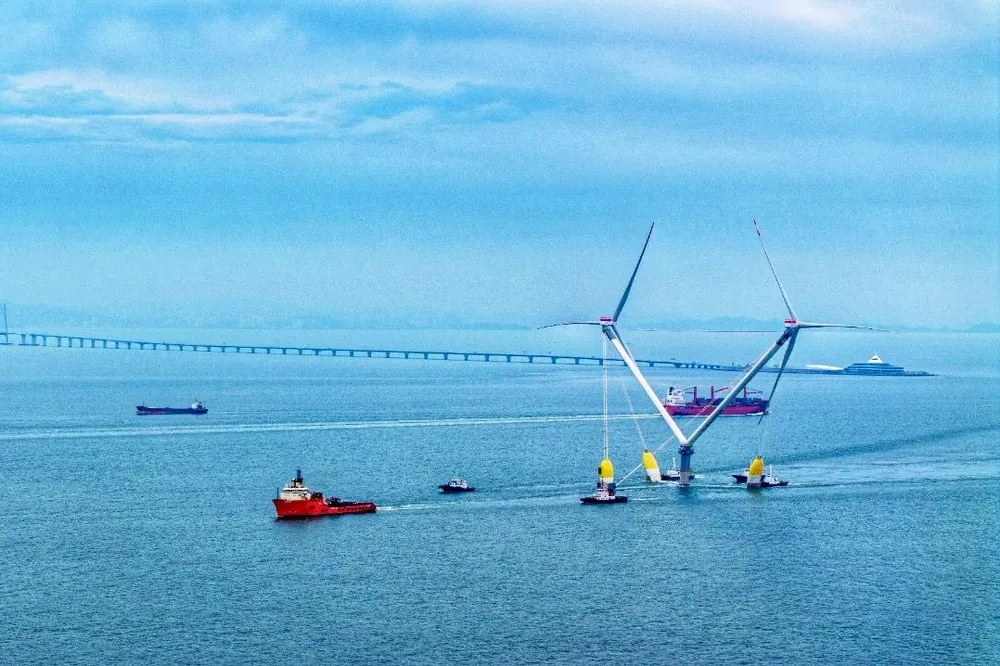‘Groundless’: China rubbishes claims its wind turbines could spy on Europe
Chinese chamber of commerce defended Mingyang, which has been lined up for German offshore wind project, against accusations its turbines pose security threat

China has hit back at “groundless” and “implausible” claims that wind turbines from the country could be used to spy on Europe, or even be switched off from Beijing, after a German think tank warned the machines could be used for “blackmail”.
The China Chamber of Commerce to the EU (CCCEU) issued a statement expressing concern over the “politicisation” of deals between wind developers in Europe and Chinese turbine suppliers.
In its statement, the CCCEU said that while national security is a “valid consideration” regarding wind turbines, “its overuse risks distorting markets and undermining international trade”.
“The CCCEU urges Germany to uphold non-discrimination principles and avoid politicising clean energy investments at a time when cooperation is essential for Europe’s green transition.”
“Allegations that Chinese wind firms could exploit turbine sensors for data collection are technically implausible and lack factual basis. These sensors serve clear functions – optimising turbine performance, monitoring faults and protecting wildlife.”
Regarding the Waterkant project, “all control systems, data storage, and remote management remain with German and European project developers,” it said. “Claims of ‘remote control’ or ‘data leakage’ amount to groundless and unsubstantiated concerns”.
The CCCEU said that politicising commercial projects “threatens fair competition and investor confidence” and excluding Chinese suppliers based on “unverified security concerns would constitute trade protectionism, contradicting the EU’s commitment to free markets.”